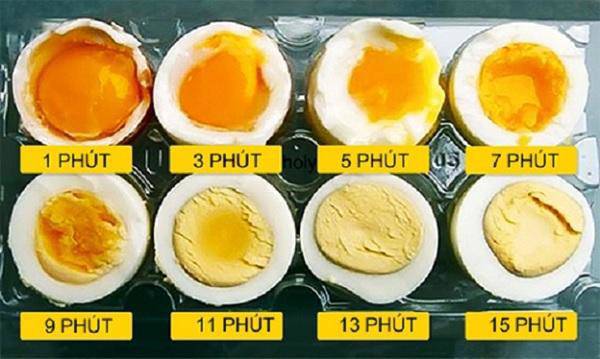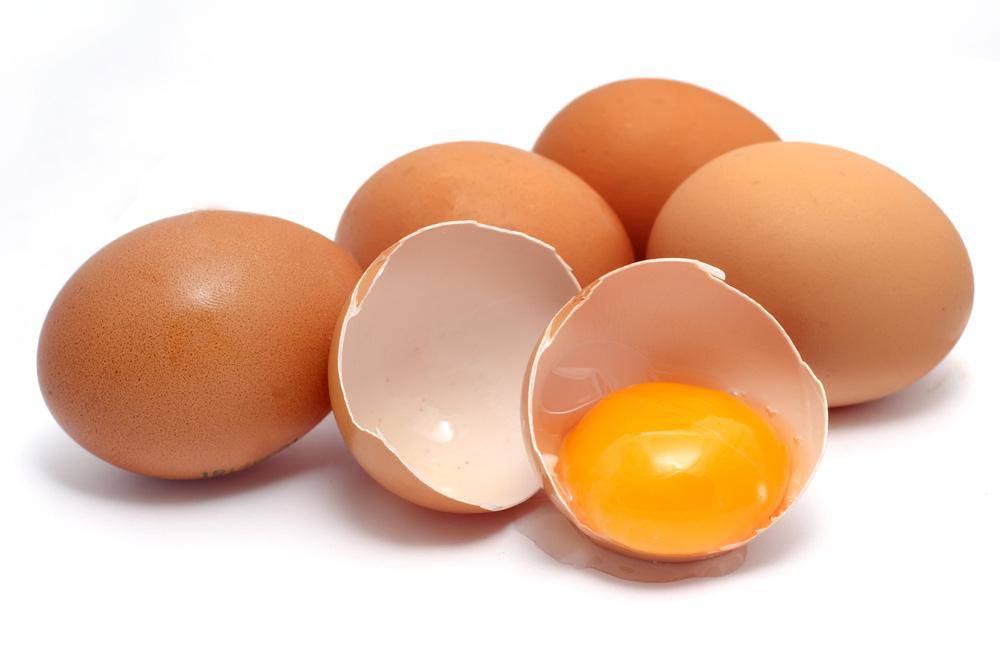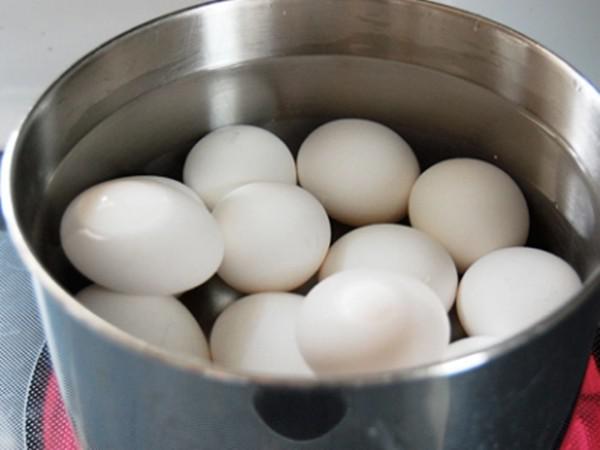Boiling eggs with boiling water
If you boil eggs with hot water, you should stop doing that. Because this method will make the eggs easy to crack. The best way is to boil the eggs with cold water from the beginning.
To boil eggs well, you need to use cold water. When the water temperature and the egg temperature are the same, the eggs will be well-cooked and not cracked. You can also add a little salt to the boiling water to prevent the eggs from cracking.
If you want chicken eggs or duck eggs not to crack when boiling, you just need to add a little salt to the boiling pot or rub the eggs with lime around the shell. The eggs will be well-cooked and not cracked anymore. If there are cracks on the shell, you can add a small spoonful of vinegar to the boiling water to prevent the egg white from seeping out.
Boiling eggs too well or not well enough

The boiling time of the eggs will determine the degree of doneness and the quality of the boiled eggs
If eggs are boiled too well or not well enough, it is not good for health.
Take note that when the eggs are boiled for too long, a grayish blue layer will appear on the surface of the yolk due to iron in the chicken eggs. This layer makes it difficult for the body to absorb. Well-boiled eggs also do not retain the fresh taste as when cooked to perfection, affecting the enjoyment of the food.
On the other hand, undercooked eggs contain two compounds that are difficult to break down, which adversely affect the absorption and digestion of protein in eggs. Moreover, during storage, eggs may have some disease-causing bacteria. When undercooked, these bacteria will not be destroyed, and this can easily cause diarrhea.
The boiling time of the eggs will determine the degree of doneness and the quality of the boiled eggs. According to research, the optimal time for delicious and nutritious eggs is 5 minutes. You can adjust the boiling time according to your preference for egg doneness.
Here are the timing milestones for varying degrees of doneness:
• 1 minute: At this point, the egg white is just beginning to solidify, while the yolk is still runny.
• 3 minutes: At this time, the egg white is slightly solid, and the yolk will have a soft peach-like color.
• 5 minutes: The yolk is thick and custardy, with a peach-like color.
• 7 minutes: At this point, the egg white is fully cooked and firm, while the yolk is cooked but still has a pink hue inside.
• 9 minutes: This is the perfect time for eggs that are slightly cooked.
• 11 minutes: The yolk turns yellow, and the eggs are fully cooked.
Boiling very fresh eggs

When boiled, fresh eggs are difficult to peel
For boiled eggs, you should not choose fresh eggs for cooking because when they are fully cooked, the eggshells will stick to the egg whites, which is not aesthetically pleasing.
To have delicious and easy-to-peel eggs after boiling, you should choose eggs that are older in age. Eggs are fresh when laid, and after harvesting, they are packaged and sent to stores and supermarkets. The best shelf life for eggs is 1 month, so you should choose eggs that have been packaged for at least 2 weeks. If you buy fresh eggs, you can wait for about 2 weeks before using them.
Choosing the wrong pot size

Boiling eggs with a few pinches of salt will prevent them from cracking
You should not boil too many eggs in a small pot. Choosing the wrong pot size will result in uneven cooking and the risk of cracking. Therefore, you should use a pot that is the right size for the number of eggs you want to boil.
To ensure the nutritional value, when boiling eggs, you need to put the eggs in a pot with enough cold water to cover them about 2-3 cm. If there is too little water, the protein in the eggs will coagulate, making it difficult to digest and absorb. Then, gradually increase the heat, when the water boils, reduce the heat and simmer for 2 minutes, then turn off the heat and let it sit for another 5 minutes. When boiling, do not cover the pot and use high heat. If you want the eggs to boil quickly, add a little salt to the water.
If the eggs are stored in the refrigerator, take them out before boiling for about 15-20 minutes, because if the boiled eggs are too cold, the shells will crack.
Family & Society




































